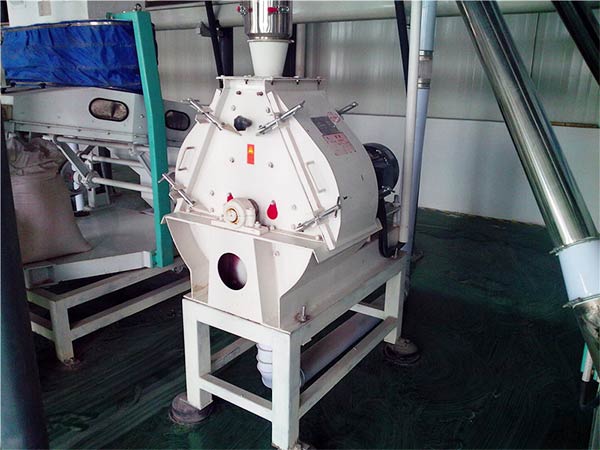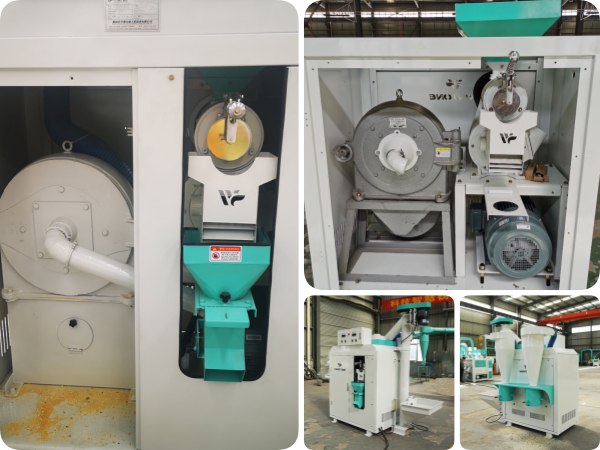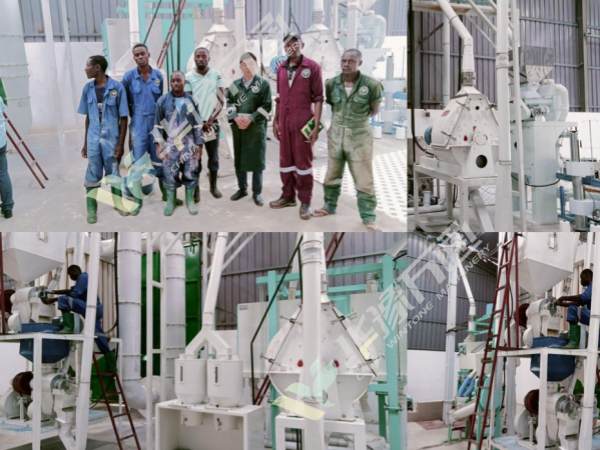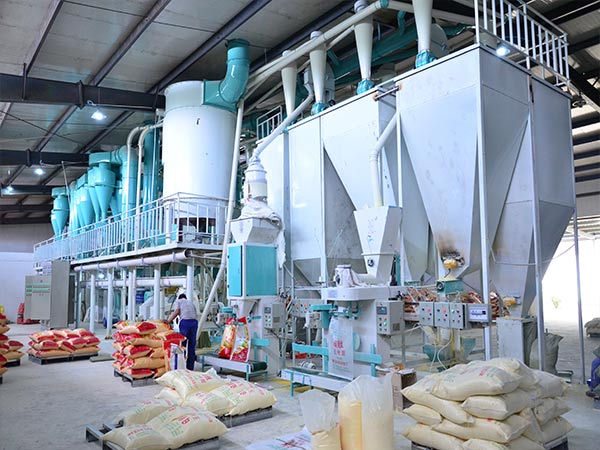-
+86-371-86159555
Introduction:
The demand for maize flour, a versatile ingredient used in various culinary applications, continues to grow. As a result, efficient and reliable grinding equipment is crucial for businesses involved in maize flour production. Two commonly used types of grinders for maize flour production are hammer-style grinders and gear-type grinders. In this comprehensive guide, we'll explore the characteristics, advantages, and disadvantages of each type to help you determine which one is best suited for your needs.
1. Characteristics:
Hammer mills feature a rotating hammer mechanism that crushes maize kernels against a screen or a series of hammers. This mechanism is designed to reduce the maize kernels into a fine powder.
2. Advantages:
- Efficiency: Hammer mills are capable of processing a large quantity of maize in a short amount of time. Their high-speed rotation ensures quick grinding, making them suitable for high-volume operations.
- Versatility: These grinders can handle a variety of materials, including maize kernels of different sizes and shapes. They are also capable of grinding other grains and seeds.
- Simplicity: Hammer Mills have a relatively simple design, which makes them easy to operate and maintain. They are also portable, allowing for easy relocation in different locations.
3. Disadvantages:
- Noise and Vibration: Maize hammer mill can be quite noisy and generate significant vibration during operation. This may require additional noise and vibration dampening measures to be implemented in the workplace.
- Wear and Tear: The moving parts in a maize hammer mill, such as the hammers and screens, can experience wear and tear over time. Regular maintenance and replacement of these parts may be necessary to ensure optimal performance.

Maize Hammer Mill Application in Processing Line

Win Tone's Combined Maize Disc Mills with Degerming
1. Characteristics:
Maize disc mills use a series of gears to crush maize kernels. The gears rotate at a lower speed compared to hammer mill, resulting in a more precise and fine grinding process.
2. Advantages:
- Efficiency: Maize disc mills are known for their efficiency in producing a fine maize flour consistency. The low-speed, high-torque gears ensure a thorough grinding process, resulting in a higher yield of high-quality maize flour.
- Durability: Maize disc mills are typically constructed with higher-quality materials, making them more durable and long-lasting compared to maize hammer mills. This longevity translates to lower maintenance costs in the long run.
- Precision: The precise grinding action of maize disc mills results in a consistent and uniform particle size, which is crucial for achieving a high-quality maize flour product.
3. Disadvantages:
- Cost: Maize disc mills may require a higher initial investment due to their more complex design and superior materials. However, their longevity and efficiency can offset this higher cost over time.
- Capacity: Some maize disc mills may have a lower capacity compared to maize hammer mills, which may not be suitable for high-volume production. However, this factor ultimately depends on the specific model and size of the grinder chosen.

30TPD Complete Maize Milling Plant in Uganda
Conclusion:
When it comes to processing maize flour, both hammer mills and disc mills have their advantages and disadvantages. The choice between the two ultimately depends on your specific production needs, budget, and desired product quality. For small-scale operations or home use, a hammer-style grinder might be the more suitable option due to its lower cost and ease of operation. However, for commercial enterprises or those requiring a consistent, high-quality product, a gear-type grinder could be the better choice despite its higher initial cost and potentially lower capacity.
Energy Efficiency:
Energy efficiency is a significant consideration for any business, as it can impact operational costs and environmental impact. Gear-type grinders generally operate at lower speeds, which can lead to lower energy consumption. However, advancements in hammer-style grinder design have improved their energy efficiency as well. When choosing a grinder, look for Energy Star certifications or similar ratings that indicate the equipment's efficiency.
Safety Considerations:
Safety should always be a top priority in any manufacturing environment. Both hammer mills and disc mills have safety features, such as emergency stop buttons, guards over moving parts, and interlocks that prevent operation when guards are not in place. It's important to ensure that any equipment you purchase meets or exceeds safety standards set by organizations like the Occupational Safety and Health Administration (OSHA).
Maintenance Requirements:
Maintenance is an integral part of keeping your grinding equipment running smoothly and extending its lifespan. Hammer mills typically require more frequent maintenance due to their moving parts and higher operational speeds. Maize disc mills, on the other hand, are generally more robust and require less frequent maintenance, which can save on operational costs over time.

Maize Hammer Mill For Grits Making
Product Quality:
The quality of the maize flour produced is a key factor in determining the success of your business. Maize disc mills are often favored for their ability to produce a finer and more consistent flour, which can be important for certain applications that require a precise particle size. Hammer mills may produce a slightly coarser flour, which can be suitable for other products like maize meal or animal feed.
In conclusion, choosing the right grinder for your maize flour processing needs is a multifaceted decision that considers cost, efficiency, safety, maintenance, and product quality. It's advisable to consult with equipment manufacturers, industry professionals, and perhaps even conduct a trial run with different types of grinders to ensure that your choice aligns with your business goals and operational requirements.

As you embark on your maize flour processing venture, remember to also consider the broader aspects of your operation, such as grain handling, storage, and moisture control, which can impact the final product. Investing in high-quality equipment and practices will not only improve the quality of your maize flour but also enhance your reputation in the market.
Remember to research and compare different brands and models of grinders, as the features and capabilities can vary significantly. And finally, don't forget to factor in customer reviews, testimonials, and case studies from other businesses that use the equipment you're considering, as they can provide valuable insights into real-world performance and reliability.
By carefully considering all these factors, you'll be well on your way to selecting the perfect grinder for your maize flour processing needs. Happy milling!
+86-371-86159555
86635803
No. 57 Science Avenue
Zhengzhou, Henan, China
7*24 hours
Human services